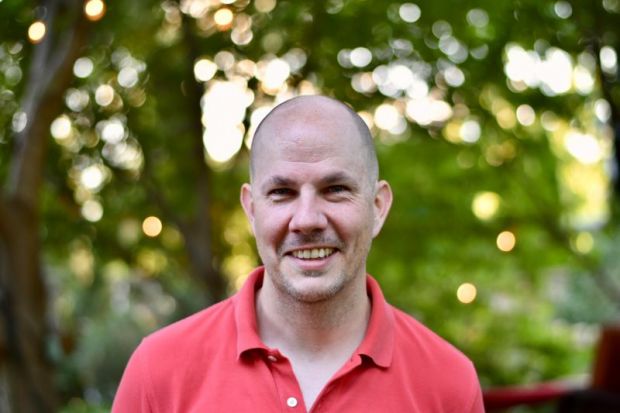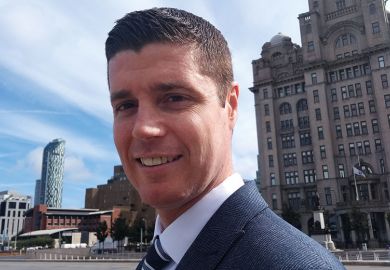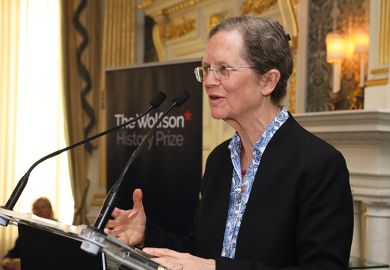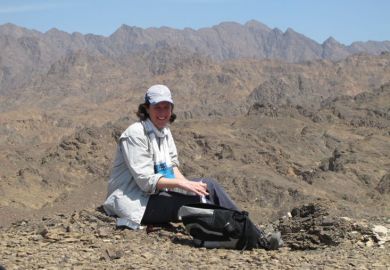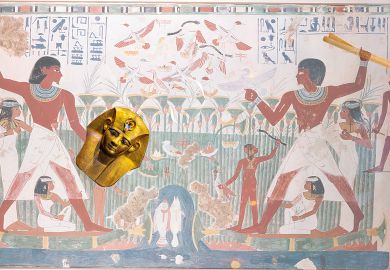Norman Sandridge is an associate professor of Classics at Howard University, a historically black university in Washington DC, and a fellow at Harvard University’s Center for Hellenic Studies. He originally studied maths and physics before moving over to Classics, and is a co-founder of Kallion Leadership, an organisation that aims to use lessons from ancient times to improve leadership across society.
Where are you from?
Born in the 1970s and raised in Woodstock, Georgia, a rural town about 30 miles north of Atlanta.
Newt Gingrich’s district?
Yeah, I grew up watching his rise to political power, and it was pretty crazy even then. George H. W. Bush campaigned in 1992 in Woodstock, when I was 17, and my dad drove in his motorcade as a volunteer.
So, rural conservative Southern?
Yes. Lower middle class, mostly white. But we had good public schools, and I had good friends – these were my life rafts. My second-grade teacher was the state’s elementary schoolteacher of the year, and I had a great history teacher in high school. I was always a math and science person, and I entered the University of Alabama in Huntsville as a physics major. But in my sophomore year, I had a really amazing Latin professor who introduced me to the study of grammar and ancient languages. It was my first scientific, or really formal, segue into the humanities, in the sense that the humanities could be a real science. And that became a gateway for me. Even though I finished with a physics degree, I turned to Classics in grad school. One Huntsville professor, Richard Gerberding, a medieval historian who studied at the University of Oxford, built a castle in northern Alabama and invited students there. He was a great mentor and an inspiration for a whole generation of us.
How did that academic transition go?
More than anything else, I remember having this thought that, scientifically speaking, in terms of STEM, the world was probably going to be all right without my contributions. I had discovered that you could study the ancient world in a really systematic way, and I felt the urgent need to address as many of the world’s problems as we could. And I didn’t think science and technology was going to fix all that.
As for Howard University, you don’t fit the profile.
I was finishing up my dissertation, and Howard was the first to hire me. There are a lot of functionality issues with Howard, but I don't know a university that’s more vital in 2019 than Howard University.
Ta-Nehisi Coates wrote about the central importance of that campus in Between the World and Me.
Yes, “the Mecca”. It’s education in the broadest sense of experiential education and cultural education, completely independent of the coursework.
Does it feel like intruding?
The field of Classics, largely by its own choosing, has a long white supremacist tradition to it – the notion that all good ideas came from Greece and Rome, and everything else is derivative of that. Sometimes students will ask why not study more African or African American authors. But I’ve never gotten: ‘You are a white guy intruder’ – nobody’s ever given me that vibe. I always feel like the Man from Mars to some extent, but I have always felt welcome at Howard.
What is Kallion Leadership?
Some people can read a biography of Abraham Lincoln and put it away and know they’re done with it. Other people read it in such a way that they come away being more Lincolnesque somehow. We want to really study and understand that process. We also want to be very activist in promoting that process in higher education, and in other leadership communities such as business, military, politics.
What does “Kallion” mean?
It’s a Greek adjective that just means “better”. Leadership is very passionately and thoroughly studied from a business context, military context and political science context. But we really feel that the home of leadership is within the humanities. We want to bring it back to the study of language, the study of ethics, the study of storytelling – symbols and arts and things like that – because these are the things that people really trade in when they’re dealing with one another.
Maybe get a Fortune 500 company president to reflect on that?
That’s a piece of it. We’re organising retreats for people in executive leadership roles, and putting together an online magazine for teaching leadership in the humanities.
Some research suggests that leaders are often psychopaths.
I’ve studied that a lot. People are put off by psychopathic leaders – their cruelty makes us sick and uncomfortable. Yet there can also be a relief that someone else is going to do the cruel but necessary thing that we don’t want to do. If psychopathic leaders don’t want to participate in that conversation, I’m not surprised, but I think we as a people need to have a conversation about our ambivalence – this isn’t just about psychopaths tricking us.
Does technology, and artificial intelligence in particular, make it even more important that we really understand our motivations, the purpose-of-life questions?
Absolutely. AI requires great care in writing prime directives. To bring it back to the humanities, we have to understand the human experience, writ large, for the 300,000 years that we’ve been on this planet – and the values we’ve espoused and the stories we’ve told each other that we try to live by and live up to, and the character you need.
paul.basken@timeshighereducation.com
Appointments
Jane Harrington has been appointed the new vice-chancellor of the University of Greenwich. Professor Harrington, who will take up the position in December, is currently deputy vice-chancellor and provost at the University of the West of England. The former lecturer in human resources management will replace David Maguire, who is retiring. Marianne Ismail, chair of governors at Greenwich, said Professor Harrington brought with her “a wealth of experience”, particularly in widening access and enterprise.
Benjamin Kile is moving to the University of Adelaide as executive dean of the Faculty of Health and Medical Sciences. He is currently head of the School of Anatomy and Developmental Biology at Monash University. Professor Kile said the role offered “a remarkable opportunity to contribute to a bold new era in the university’s – and South Australia’s – medical and health sciences education and research sector”.
Suzanne Walsh will join Bennett College in North Carolina as president next month. She will succeed Phyllis Worthy Dawkins, who stepped down in June after leading a $9.5 million (£7.5 million) fundraising campaign to secure the institution’s future.
Nana Poku has been named vice-chancellor of the University of KwaZulu-Natal. Professor Poku, previously deputy vice-chancellor of the College of Law and Management Studies, has been serving as acting vice-chancellor since last October, when Albert van Jaarsveld stepped down.
Christy Pratt has been appointed director of admissions at the University of Notre Dame. She was previously senior associate dean for undergraduate admissions at the University of Virginia.
Mabokang Monnapula-Mapesela has joined Rhodes University as deputy vice-chancellor (academic and student affairs). She was previously dean for academic development and support at South Africa’s Central University of Technology.
John Dewar, vice-chancellor of La Trobe University, has been appointed deputy chair of the Universities Australia board.
Register to continue
Why register?
- Registration is free and only takes a moment
- Once registered, you can read 3 articles a month
- Sign up for our newsletter
Subscribe
Or subscribe for unlimited access to:
- Unlimited access to news, views, insights & reviews
- Digital editions
- Digital access to THE’s university and college rankings analysis
Already registered or a current subscriber?
